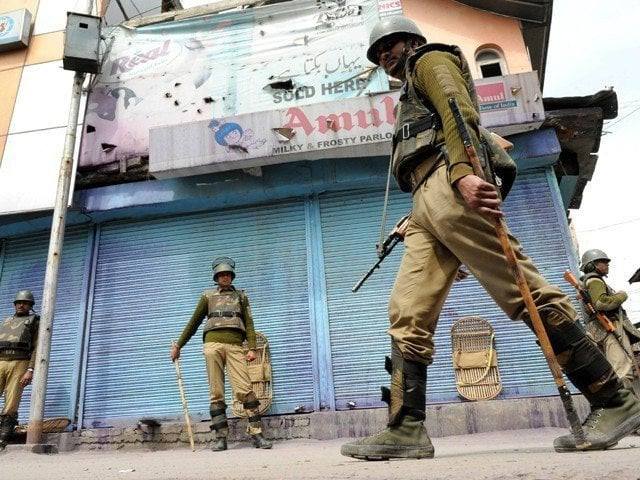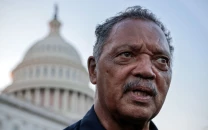Will India's new representative in Kashmir be able to bring 'normalcy' to the disputed region?
'Sharma cannot achieve anything by talking with parties who say Kashmir is not disputed,' says Bukhari

A file photo of Indian forces in held Kashmir.
PHOTO: AFP
As reported by Voice of America, his task will undoubtedly be an uphill struggle. One of his predecessors, Radha Kumar, has called his job "hugely daunting", adding, “We are at a point of alienation I could not have even dreamed of 15 years ago.” However, she was hopeful that it would be a step in the right direction, saying, “I think it is a huge breakthrough, that the government has recognised that they really need to start talking to people.”
Ex-RAW chief says dialogue only way to resolve Kashmir dispute
Among Kashmiris themselves, however, there is little optimism. They doubt whether Sharma can combat the anti-India feelings which have been especially heightened since the killing of Burhan Wani, a militant leader, last summer. The move towards dialogue follows Prime Minister Narendra Modi's Independence Day statements that 'hugs' and not 'abuses' would bring peace to the Kashmir Valley.
While political analysts have stated the the local population has been 'craving' such an engagement, recent developments do not bode well for the success of these talks. Most critically, the leaders of the Hurriyat, Kashmir's main separatist alliance have refused to participate in talks with Sharma, labelling them an "excercise in futility".
Shujaat Bukhari, editor of the Rising Kashmir newspaper does not believe Sharma can achieve anything by talking with parties which agree with New Delhi on Kashmir not being disputed territory. “The dialogue needs to be done with the people who actually represent the voice of dissent in Kashmir. I don’t think it is going that way”, he said.
The land and people of Kashmir, claimed by both Pakistan and India, have a long history of demanding independence or at least greater autonomy from rule by the Indian federal government. The demands for freedom peaked in the 1990s, but there has been an upsurge in protest activity, especially among students, with slogans for freedom regularly heard in it's summer capital, Srinagar.
Let's talk on Kashmir, new FM Khawaja Asif tells India
The increased participation of young people in the protests, and Kashmir's militant groups, in also the focus of Sharma's mission, and he is record as saying that he wants to 'deradicalise' them amid drawing comparisons between Kashmir and Syria. Bukhari is dismissive of such comparisons, saying that the emergence of a civil war “ is not a remote chance”.
Observers are not confident that talks will be successful with New Delhi's current position on not granting any further autonomy to Kashmir, with Radha Kumar saying that “It does not help when the government says that they consider autonomy to be secessionist and they wont even consider it. ” Sharma is more confident, howevr, as he seeks to induce “long-term normalcy... which does not fizzle away quickly.”



















COMMENTS
Comments are moderated and generally will be posted if they are on-topic and not abusive.
For more information, please see our Comments FAQ